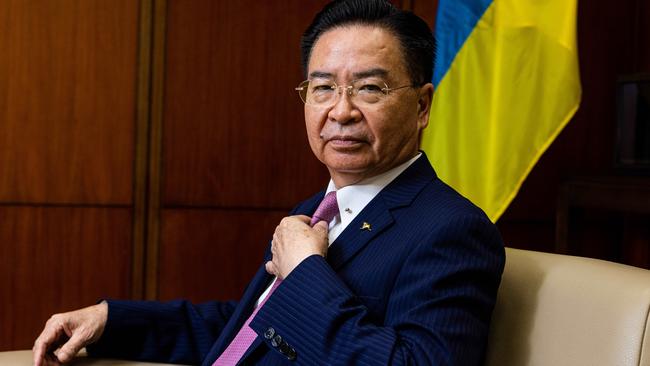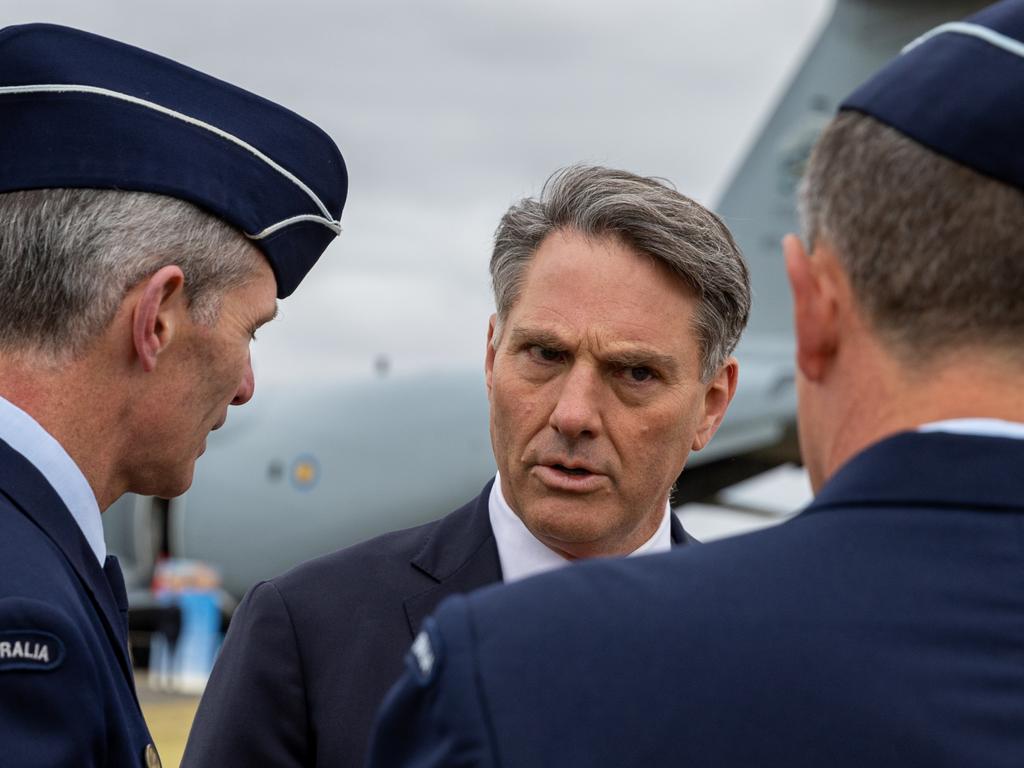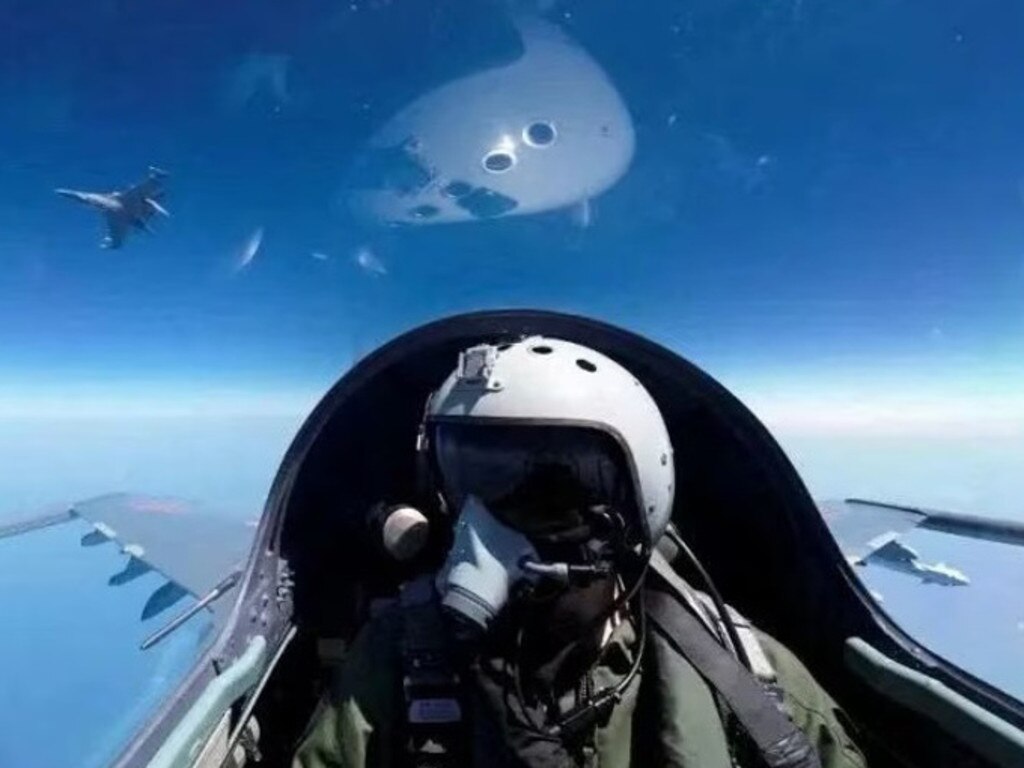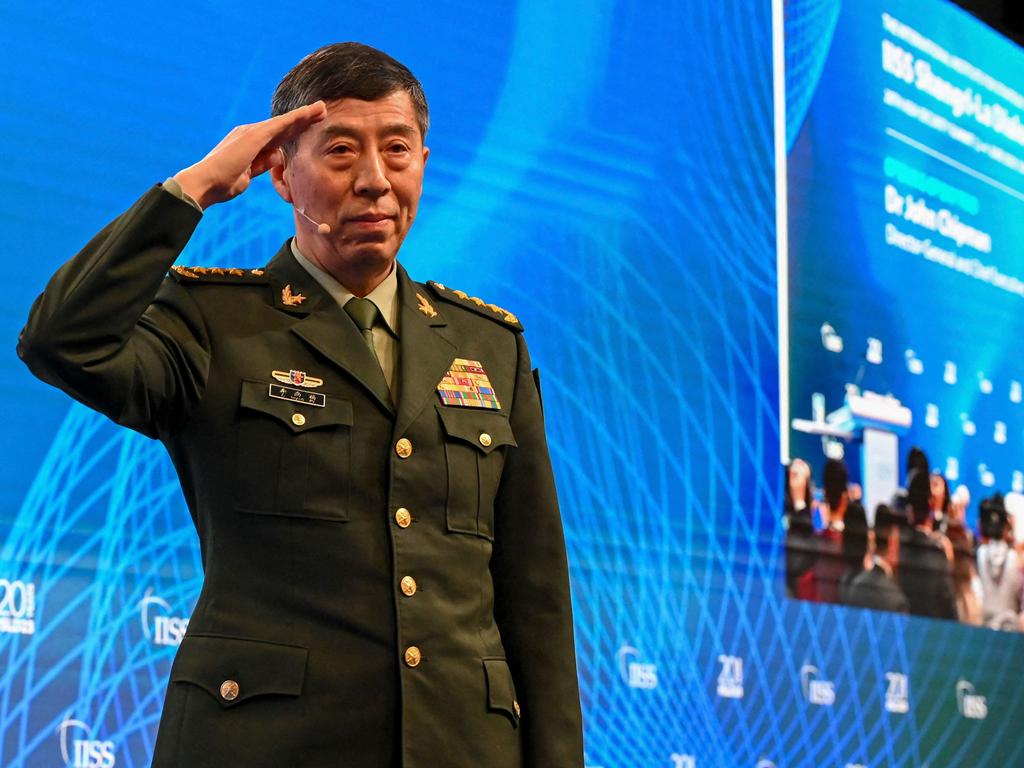Taiwan frustrated by Australia’s decade-long trade snub over fears of China
Anthony Albanese’s trip to Beijing is the latest in a litany of reasons given for Canberra’s cold shoulder to its fifth biggest trading partner.

Taiwan’s government is frustrated by Australia’s refusal to begin trade talks, as Anthony Albanese’s China trip becomes the latest in a litany of reasons given for Canberra’s decade-long snub of its fifth biggest trading partner.
Taiwanese Foreign Minister Joseph Wu said that before President Tsai Ing-wen’s government was elected in 2016, it was told Australia wanted to sign a free-trade agreement with all of its major trading partners.
“After all this (time), Taiwan is the only country of Australia’s major trading partner … that has not had an opportunity to discuss an (economic co-operation agreement) or a (free trade agreement) with Australia,” Foreign Minister Wu told The Australian in an exclusive interview in Taipei.
Australia is on to its fifth prime minister since New Zealand signed a trade agreement with Taiwan in July 2013.
Taipei is now urging the Labor government to do what its Coalition predecessors avoided, with President Tsai’s top foreign affairs adviser suggesting the recently rebooted trade talks between Taiwan and the US could provide the impetus.
“That may be a very good starting point for Australia to think seriously about a trade agreement with Taiwan,” Mr Wu said.
However, multiple sources in Canberra said that Taiwan was likely to be disappointed, at least until after the Prime Minister’s trip to Beijing, which will likely take place in October. They warn the go-slow could last much longer than that.
“Clearly this government is going very slowly and cautiously on Taiwan,” said one, speaking anonymously because of the government’s sensitivity about relations with Taipei.
Asked whether the Albanese government was interested in pursuing a trade agreement with Taiwan, a spokeswoman at the Department of Foreign Affairs and Trade answered on behalf of Trade Minister Don Farrell.
“Australia and Taiwan continue to explore practical opportunities to deepen our trade and economic relationship through our annual Bilateral Economic Consultations, which are consistent with Australia’s longstanding and bipartisan one China policy,” said the DFAT spokeswoman.
Canberra’s caution is making it something of an outlier among many of its closest allies and partners.
The UK’s Trade Policy Minister Greg Hands visited Taipei for formal meetings last November, but no Australian minister has travelled to Taiwan since the Rudd-Gillard government.
Singapore in November will mark 10 years since it signed a free-trade agreement with Taiwan, another precedent routinely raised by exasperated Taiwanese trade officials.
In another oddity, Canberra asks delegations of sitting Australian politicians not to be photographed with Taiwan’s leaders, a stark contrast to visiting politicians from France, Germany, Canada and other liberal democracies.
Australia also refuses to station a military attache in Australia’s de facto embassy in Taipei, unlike Japan, Singapore, India, the Philippines, the US and other countries.
Defence Minister Richard Marles’ office and the Department of Defence declined to comment on a request from Foreign Minister Wu for Taipei and Canberra to exchange military attaches to better share information.
A Defence spokesman also declined to comment on why the department recently declined to meet a delegation of Taiwanese defence officials in Canberra.
However, The Australian can reveal the visiting Taiwanese met in Canberra with the opposition defence spokesman Andrew Hastie and Labor’s Peter Khalil, chairman of parliament’s joint committee on intelligence and security, in addition to security-focused academics and think tankers.
Despite the government’s anxiety, corporate Australia is growing ties with Taiwan. LNG, coal and iron ore exports are booming.
Australia’s best known asset manager Macquarie has bankrolled the Formosa wind power project, a key plank in the Tsai government’s policy to increase the amount of renewable energy in its grid.
Australia is proud to be Taiwan’s largest energy/resources provider and energy transition partner. As theðŸŒtransitions to a #NetZero emissions future we have new opportunities to deepen cooperation in wind, solar & low emissions technologies like hydrogen.https://t.co/mRh10bQcGtpic.twitter.com/rpGa1jagPS
— Jenny Bloomfield (@AusOfficeTPE) May 30, 2023
“It is a big investment,” Foreign Minister Wu told The Australian.
“It is also very important for the international community to see that the Australian investment here in Taiwan is increasing rather than decreasing.
“That shows the Australian confidence in the long term Taiwan security,” he said.
Glenn Lio, the head of the Australian and New Zealand business chamber in Taiwan, called for Canberra to start talks on a formal trade agreement.
“Taiwan is Australia’s 5th largest trading partner. Australia has free trade agreements with 9 of its top 10 global trade partners,” said Mr Lio, ANZCham Taiwan’s executive director, told The Australian.
“We believe it’s time for Australia and Taiwan to step up our partnership by having a formal agreement in place,” he said.
Read the first part of The Australian’s interview with Taiwanese Foreign Minister Joseph Wu here.








To join the conversation, please log in. Don't have an account? Register
Join the conversation, you are commenting as Logout